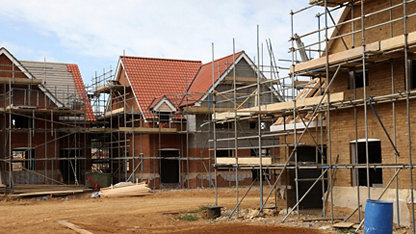Economist View:
Today’s statement by the Chancellor contains a bold set of measures designed to address the immediate recovery phase from COVID-19 as well as place the economy on a more solid footing in the medium term. Significantly, most high frequency trackers of macro activity suggest the economy is still only running a little over 50% of pre-virus level although some sectors are now seeing more material improvements. However, doubts about how this will play out as the furlough scheme unwinds is clearly a key driver of the various new initiatives which should not only provide an immediate boost for demand but also support an upskilling of the workforce and promote the ‘levelling up’ agenda.
A range of eye-catching measures include the Kickstart scheme that will effectively provide encouragement for businesses to hire, albeit temporarily, up to 300,000 young people, the inducement to take back furloughed staff and the £2bn of grants for green home improvements. Alongside this, temporary changes to VAT and the Stamp Duty holiday should offer support for sectors particularly hard hit by the lockdown. Although the latter has attracted some mixed views, the appeal of the measure has more to do with the wider implications of a higher level of property transactions for household spending on a range of consumer durable goods and employment than specifically what it means for the housing market itself.
This was not going to be the occasion when further investment programmes were announced beyond the acceleration of capex previously highlighted. However there still remains a strong case for the Chancellor to build on the infrastructure plans by adding to public sector housebuilding programme if it is serious in addressing the ongoing crisis in housing.
The OBR will not be publishing their detailed forecasts and analysis of debt sustainability until 14 July which will provide a little more clarity about some aspects of the package. However, given the negligible cost of borrowing today there is a strong case for taking advantage of this situation to build a platform for recovery. In due course, there will be a need to address the ballooning level of public sector debt but that is rightly an issue that can be addressed when the economy is back on a more sustainable growth path.
Policy:
Government’s announcement today has tried to ensure that they continue to keep the public at the heart of their interventions. The economy can only bounce back if people feel safe and confident enough to stimulate the economy. Consumer confidence is something RICS has highlighted as a lynchpin to short, medium and long-term recovery.
The message today is one of injecting confidence in the economy without inflating it falsely, but Government must also look at the impact of wariness on recovery. The measures announced will help alleviate people’s caution and encourage them to start spending money and stimulate the economy.
The assurances around Government aims to keep jobs will help those currently on furlough feel secure in their employment. While the VAT cut to vital elements of the hospitality and tourism sector will help people to start enjoying a staycation and their summer with more consumer financial confidence. Leo’s can also see birthday dinners for August possibly £10 cheaper for their carefully selected expanded bubble group.
Households won’t move house, stimulate the high street, go back to their offices or even renovate if they don’t feel confident within the economy to spend their own money instead of saving.
Stamp Duty Land Tax:
Housing as an industry will be a linchpin to economic recovery. As the Government looks to try to establish a clear picture of what the new normal looks like, they must acknowledge the role the place within which we have spent most of our time during Covid-19, our homes, plays within the economy.
The current global health pandemic and subsequent lockdown has changed the way we interact with where we live. This may result in people reassessing how adequately their current home meets their needs, especially as we start to look at a new normal which could include more of us working from our homes than ever before. Consumers need the confidence fiscally to make a decision to move home, whether that is to downsize, move from renting to owning or moving to a home that better suits the new normal.
In March RICS called for a stamp duty holiday to help stimulate the home buying and selling market. The announcement today that the Government will be extending the Nil Rate Band of Residential SDLT, in England and Northern Ireland, from £125,000 to £500,000 from 8 July 2020 until 31 March 2021 is welcomed by RICS. We would urge Scottish and Welsh Governments to look at replicating this measure within their devolved regions.
Whilst understanding the limited nature of this measure we would urge UK Government to continue to monitor the initiative, to ensure it is stimulating the housing market as intended. This is especially needed within the Northern Ireland market, where historically, average house prices have fallen below the Nil Rate Band of Residential SDLT.
This SDLT holiday also presents an optimum opportunity for Government to do a thorough review of the SDLT regime which has been a long called for by RICS and its members. As the Government looks at what a new normal looks like, they must ask themselves the hard questions of what new normal do we need, what isn’t working, and make difficult decisions to reform their own processes.
Green Homes:
As the UK prepares to spend more time at home, for our work as well as leisure, the benefits of green home improvements will continue to gather momentum, including the need to make improvements to decrease bills.
There is an urgent need improve the energy efficiency within the UK’s building stock and retrofitting provides this opportunity. The built environment sector contributes significantly to national energy use and carbon emissions, and when new build housing –-which has been subject to increasing energy efficiency standards only accounts for 1-2% of total building stock each year, there is a need to accelerate the pace of decarbonising the UK’s existing housing stock, to meet net-zero ambitions.
From September the Government will introduce a £2 billion Green Homes Grant, providing at least £2 for every £1 spent up to £5,000 per household, to make homes more energy efficient. For those on the lowest incomes, the scheme will fully fund energy efficiency measures of up to £10,000 per household. The most welcome element of this announcement is that it will be extended to landlords and not just homeowners, allowing for those who live in the private rented sector to have the ability to have their home made more energy efficient and not be discriminated against for not owning their own home. The Government has committed to have all rental properties at an energy efficiency rating of ‘C’ by 2030. Until now there has been few initiatives from Government to landlords to help them start bringing their properties energy efficiency up within the next decade.
However, if the Government is to achieve significant carbon savings, it must bring forward a package of policy measures not just the one announced today. RICS would like to see Government endorse and implement our call to reduce the VAT regime for home repairs, maintenance and improvement work. This will not be straight forward and requires a significant step change to accelerate pace, but will result in a reduction in carbon emissions, be an economic stimulator, and can deliver positive social benefits through improving indoor health and wellbeing and skilled job creation.
Green Skills
The Government announced a significant package of support to try and mitigate the probable mass unemployment that the Covid-19 pandemic is predicted to cause. Unfortunately, it won’t prevent some level of structural unemployment. Jobs lost in retail and hospitality are unlikely to provide the workforce for construction and the built environment especially in the short term and can only help in the long term if those workers decide to undertake reskilling into the construction industry.
They are also funding a Construction Talent Retention Scheme to support the redeployment of workers at risk of redundancy. This will help retain construction skills and match talented workers to opportunities across the UK. The scheme will keep skills in the sector, matching displaced workers with employers seeking new staff and is based on a proven model to safeguard talent in the aerospace and automotive sectors, bringing more job security to those within the sector and helping to provide more confidence within the sector and economy.
There was a significant focus on the next generation and ensuring that those leaving school soon, or who have just left school or education, are not left behind with significant amounts of money being put towards incentivising employers to train and hire young people.
The Government announced a Kickstart scheme to help those on universal credit and at risk of unemployment, high quality 6-month work placements. They also announced many new measures to stimulate apprenticeships and training which are vital pathways to providing the skills needed for the construction industry.
The Government will:
- fund employers who provide trainees with work experience, at a rate of £1,000 per trainee, and improve provision and expand eligibility for traineeships to those with Level 3 qualifications and below.
- introduce a new payment of £2,000 to employers in England for each new apprentice they hire aged under 25, and a £1,500 payment for each new apprentice they hire aged 25 and over, from 1st August 2020 to 31st January 202. These payments will be in addition to the existing payments.
- give all 18-19 year olds in England the opportunity to study targeted high value Level 2 and 3 courses when there are not employment opportunities available to them.
- triple the number of sector-based work academy placements in England in order to provide vocational training and guaranteed interviews for more people, helping them gain the skills needed for the jobs available in their local area.
RICS has been actively involved in promoting the use of apprenticeships and have worked with Government to develop training relevant to some of the needs of the construction industry through the Design, Surveying and Planning T-Level. This focus on training that also allows for older apprentices, including those wishing to reskill, should help the country start to address the skills shortages it is experiencing within the construction sector. Hopefully it will also allow more students to see a career in the built environment as a viable field to enter and one that has the confidence and long-term support of Government.
Given the precedence today given to green homes and energy efficiency measures, Government must start addressing the issue of sustainability and retrofitting skills and support industry in addressing the skills gap by mandating that all construction and built environment related Apprenticeships and T-levels assess the apprentices understanding of sustainability and mitigation of environmental impact.
Government must also engage with industry to improve public awareness of standards and professional competency-based advice and training in regard to energy efficiency retrofits and wider home improvement works, especially for heritage buildings which are more complex and present a skills gap in the market
House Building:
At the end of June, the Prime Minister announced the Government’s intention to ‘Build Build Build’. However his announcement around the house building industry was focused on permitted development rights, a delivery vehicle that has been shown to deliver a poorer standard of home.
The Government will introduce new legislation in summer 2020 to make it easier to build better homes in the places people want to live. New regulations will make it easier to convert buildings for different uses, including housing, without the need for planning permission. Hopefully the Government recognises within this legislation the need for building and space standards which were highlighted in a 2018 RICS report as not impacting upon the viability of the PDR conversion. They will also launch a policy paper setting out a plan for comprehensive reforms of England’s planning system to better support the economy and release more land for housing in areas that need it most in July 2020.
Today the Government released more announcements about the house building industry that can hopefully help provide not houses, but homes people want to live.
The Government will support small- and medium-sized housebuilders that are unable to access private finance by boosting the Short-Term Home Building Fund. This is will help SME builders resume their businesses after COVID and add resilience to the market. RICS asked Government to ensure that SME builders were not neglected in the recovery, a lesson we learnt the hard way during the global recession. This announcement shows a Government that recognises the vital contribution of our SME builders in housing delivery. In another demonstration of the Government looking at how the new normal can support new approaches, we are glad to see that a proportion of this fund will be reserved for firms using innovative approaches to housebuilding including Modern Methods of Construction.
The Government has also reaffirmed their commitment to brownfield first with their Brownfield Housing Fund. The Government will allocate a £400 million to seven Mayoral Combined Authorities to bring forward land for development. To allow authorities to begin delivering projects quickly, 90% of the fund will be allocated immediately on a per capita basis, with 10% to be allocated through a competitive process.
We would also suggest Government looks at how brownfield land is classified and explore the possibility of a new land classification for brownfield land which is more capable of being built on quicker with no decontamination or need to clear to allow for developers to see brownfield land in a more positive light.














